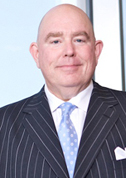© 2014 The Texas Lawbook.
By Natalie Posgate
Staff Writer for The Texas Lawbook
(March 17) – The Delaware Supreme Court, in a precedent-setting decision involving a Dallas corporation, has ruled that a company’s board of directors can legally terminate its chief executive officer and fellow board member at a regularly scheduled board meeting without giving the individual advance notice about the upcoming vote about his or her removal.
Delaware’s high court, in a case that has been monitored closely by corporate general counsel and business lawyers who represent board members, said Friday that Dallas-based Allegro Development Corporation and its board of directors did not violate Delaware law in November 2012 when the board removed Allegro founder and then-CEO Eldon Klaassen because of poor financial performance.
The decision overturns and clarifies four frequently cited rulings on corporate governance issued by Delaware Chancery Courts over the past 23 years – rulings that had been widely interpreted as meaning that company directors who are also shareholders or officers are entitled to advance notice of any matter to be considered at a board meeting that may affect that director’s specific interests.
Van Beckwith, a Dallas partner at Baker Botts and lead lawyer for Allegro, called the unanimous opinion “big and sweeping” because it adds stability and certainty to the rules for boards of companies incorporated in Delaware, which comprises about 95 percent of all businesses, including The Texas Lawbook.

“The Supreme Court reaffirmed the basic principle that Delaware corporate boards may take all lawful actions at regular board meetings, whether the actions were pre-disclosed or not, pre-notice or not, and that actions taken at such board meetings that show any irregularities or unfairness were at worst voidable decisions subject to equitable defenses,” said Beckwith, who argued the case.
“Delaware has a proud reputation of having stable corporate law, and because of stability and certainty, corporations have chosen to incorporate [its structure],” he said. “This opinion adds to that certainty.”
Others are not as sure about the impact the decision will have, pointing out that the Supreme Court’s opinion still leaves some gray areas unaddressed.
“Some parts of the acquiescence doctrine in Delaware are still left unresolved, to be worked out in later opinions,” said George Parker Young of Haynes and Boone, the lead trial counsel for Klaassen, the plaintiff. “Danger from this opinion is a party’s attempt to resolve a business dispute out of court could be re-interpreted as ‘acquiescence.’ It blesses some shenanigans, there’s no question.”
Beckwith argued the defendants’ case at the Supreme Court and served as lead trial counsel at the lower court level. Fellow Dallas Baker Botts colleagues Jon Mureen and Jordan Flournoy were also involved. The defendants were also represented by Delaware law firms Potter Anderson & Corroon and Richard Layton & Finger as well as Boston-based attorneys from Cooley.
On the plaintiff’s end, Young of Haynes and Boone’s Fort Worth office served as the lead trial counsel and the Delaware firm Morris, Nichols, Arsht & Tunnell argued at the Supreme Court. Dallas partner Anne Johnson and Fort Worth associate Kelli Walter were also on the Haynes and Boone team.
Klaassen argued that the board’s actions were void, holding no lawful merit because the board members did not give him advance notice that they were voting on his removal as CEO at one of their meetings and that they used deception to carry out their plan. Because of that, Klaassen argued that he was the rightful leader of the energy trading and risk management software company.
But the other board members, including Klaassen’s replacement, Ray Hood, said otherwise. They argued that their actions were not void, but voidable, because their removal of Klaassen took place at a regular board meeting and was fully in compliance with the bylaws and was not deceptive. The defendants also argued that before the Nov. 1, 2012 meeting that removed Klaassen as CEO, they warned Klaasseen several times that his job was in jeopardy.
They also argued that Klaassen recognized he could be removed because he sought legal advice from both inside and outside counsel on the matter and both said the board’s ability to remove him was not limited.
Klaassen sued on June 5, 2013 and the case went to trial in October at the Delaware Court of Chancery, which ruled in the defendants’ favor. Klaassen appealed to the Delaware Supreme Court, and both sides went to oral argument on Dec. 18. The court affirmed the Court of Chancery’s opinion on Dec. 20, but the written opinion did not come until last week.
In the opinion, the judges also shot down Klaassen’s deception claims, stating that it is barred by the equitable doctrine of acquiescence, however, they did not also “reach or address the separate issue of whether Klaassen’s claim is also barred by laches.”
Though the trial and Supreme Court opinion did not go his way, Young had many commendations for the Delaware judges and the opposing counsel, stating that Beckwith was “a pleasure to work with,” was “elegantly prepared” with no “cheap tricks” and was “everything you’d want” in an opposing counsel.

“The Delaware Courts’ and Supreme Court’s reputation as the premier forum in the country to resolve corporate governance disputes is well-deserved,” Young said. “And Vice Chancellor Laster was one of the smartest, hardest-working judges we’ve ever had the pleasure of appearing before.”
Klaassen founded Allegro in 1984 and owned nearly all of the company’s outstanding shares until 2007, when he sold a large amount of stock to outside investors. Two private equity funds, North Bridge Grown Equity 1, LP and Tudor Ventures III, LP, invested $40 million in Allegro in return for shares of Series A preferred stock. Klaassen and the Series A investors formed a five-member board of directors, which included Klaassen; Michael Pehl, a managing director from North Bridge; Robert Forlenza, a managing director from Tudor; and Ray Hood and George Patrich Simpkins, Jr., who both served as independent directors.
Shortly after the Series A investors became shareholders, Allegro began falling short of its financial performance projections, according to brief from the case. Board members also disapproved of Klaassen’s management style and they did not see eye to eye on the dollar amount for the board members’ exit strategy. The non-management directors spent August, September and October of 2012 considering whether to terminate Klaassen, who should replace him as CEO and how to go about doing it.
At the end of a regular July 19, 2012 board meeting, Hood and Simpkins had a private discussion with Klaassen and told him of certain actions of his that the other board members disapproved of. Hood pointed out to Klaassen that the board could fire him with two simple votes.
After the private discussion, Klaassen consulted Allegro General Counsel Chris Ducanes about whether the board could remove him as CEO. Ducanes said it could. Klaassen got a second opinion from Gibson, Dunn & Crutcher, which confirmed Ducanes’ position.
The directors met again at a July 31 special meeting to discuss various alternatives and potentially negotiate a deal for the buyout plan. The Series A investors lowered their demand to $80 million (originally set at $92 million), and Klaassen continued to offer only $60 million, according to the Court of Chancery’s October 11, 2013 memorandum opinion. To justify his $60 million offer, Klaassen detailed in a PowerPoint presentation the company’s poor performance during the life of the Series A investment, but his strategy “backfired,” because it “demonstrated just how badly the company had performed,” the memorandum opinion said.
By sometime in September, board member Pehl asked Hood if he would consider replacing Klaassen as CEO, and he eventually agreed. By mid-October, the four director defendants decided to replace Klaassen at the next regularly scheduled board meeting on Nov. 1, 2012.
In Klaassen’s opening brief to the Supreme Court, Klaassen’s counsel claimed that Hood “had a conflict of interest and he knew it” in regard to voting to remove Klaassen as CEO since he was offered the position as Klaassen’s replacement.
On Nov. 1, before the board meeting, Hood emailed Klaassen to ask if Ducanes could attend to discuss the Series A redemption issue. Hood later admitted that the email was false because they really need Ducanes there to implement Klaassen’s termination immediately after Klaassen was informed about his ouster, according to the Supreme Court opinion and the appellant opening brief.
Toward the end of the meeting, Klaassen, Ducanes and Allegro Chief Financial Officer Jarett Janik were asked to leave the room for the executive session, during which the director defendants confirmed their decision to remove and replace Klaassen. When Klassen and others returned, the rest of the board informed him of the news, and voted on the resolution (prepared by Baker Botts) that removed Klaassen as CEO and appointed Hood in his place.
Klaassen continues to serve as an Allegro director and is still the majority shareholder for Allegro’s common stock. Young said he is still considering a number of options for how to move forward.
© 2014 The Texas Lawbook. Content of The Texas Lawbook is controlled and protected by specific licensing agreements with our subscribers and under federal copyright laws. Any distribution of this content without the consent of The Texas Lawbook is prohibited.
If you see any inaccuracy in any article in The Texas Lawbook, please contact us. Our goal is content that is 100% true and accurate. Thank you.
